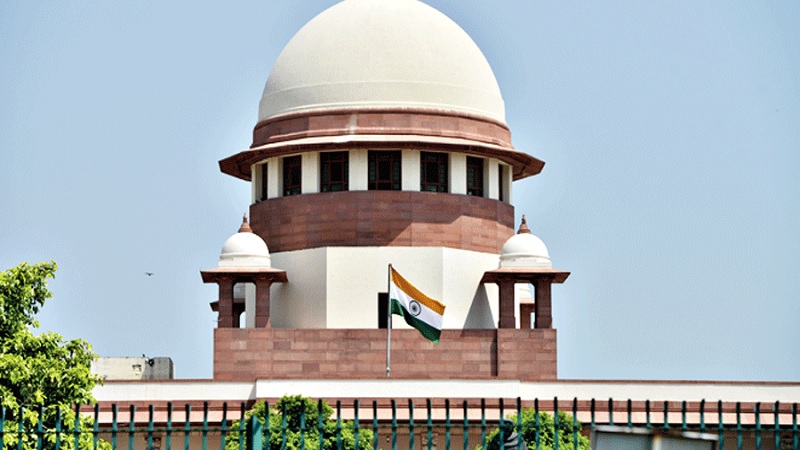
Image Courtesy: telegraphindia.com
Acknowledging the hordes of undertrials still in jails, the Supreme Court on July 11, 2022 directed the Government of India to consider introducing a Bail Act to streamline the grant of bail.
A Bench comprising Justices Sanjay Kishan Kaul and M M Sundresh said, “Bail applications ought to be disposed of within a period of two weeks except if the provisions mandate otherwise, with the exception being an intervening application. Applications for anticipatory bail are expected to be disposed of within a period of six weeks with the exception of any intervening application.”
Accordingly, the court directed all state governments, union territories and high courts to file affidavits/ status reports within four months. The landmark judgement was taken during the Satender Kumar Antil vs. Central Bureau of Investigation (CBI) case.
The court observed that jails in India are flooded with undertrial prisoners. As per data received by the court, more than two-third of prison inmates constitute undertrial prisoners. Further, the court said that most of these prisoners may not require arrests despite registration of a cognizable offense, charges punishable for seven years or less. Further, it noted that many prisoners were poor, illiterate and women.
This includes cultural activist Sagar Gorkhe and many others who have been put behind bars for an alleged role in the Elgar Parishad Bhima Koregaon case. In May 2022, Gorkhe went on a hunger strike to protest his inhuman treatment in jail. Gorkhe wrote to then Maharashtra Home Minister about how the Taloja jail authorities denied him medical treatment, telephone services and ignored the lack of water, facilities for visitors among other things.
“There is a culture of offense being inherited by many of them. As observed by this Court, it certainly exhibits the mindset, a vestige of colonial India, on the part of the Investigating Agency, notwithstanding the fact arrest is a draconian measure resulting in curtailment of liberty, and thus to be used sparingly. In a democracy, there can never be an impression that it is a police State as both are conceptually opposite to each other,” said the Court.
Bail is the rule
The Bench said that bail is the rule and jail is the exception, as recognised by Article 21 of the Constitution. The innocence of an accused is presumed while the prosecution has to prove the guilt of the person. As such, the concerned agency has a duty to warrant the need for an arrest and denial of enlargement on bail.
This presumption of innocence is seen as a cardinal principle of law in Article 14 (2) of the International Covenant on Civil and Political Rights, 1966 and Article 11 of the Universal Declaration of Human Rights.
“It has been the consistent stand of the courts, including this Court, that presumption of innocence, being a facet of Article 21, shall inure to the benefit of the accused… The weightage of the evidence has to be assessed on the principle of beyond reasonable doubt,” said the court.
Role of the court
The top court said that the “abysmally low” rate of conviction in criminal cases in India negatively influences courts’ decisions on bail applications. The Bench said that bail hearings are often decided strictly and contrary to legal principles because courts think that a conviction is more of a rarity.
“We cannot mix up consideration of a bail application, which is not punitive in nature, with that of a possible adjudication by way of trial. On the contrary, an ultimate acquittal with continued custody would be a case of grave injustice,” said the order.
Therefore, the court directed investigating agencies and their officers to comply with Section 41 and 41A of the Code of Criminal Procedure (CrPC) that deals with the arrest of persons.
“The courts will have to satisfy themselves on the compliance of Section 41 and 41A of the Code. Any non-compliance would entitle the accused for grant of bail,” said the apex court.
Further, all state governments and UTs will facilitate standing orders for the procedure under the sections while taking note of the February 7, 2018 Delhi High Court order among other orders. However, there need not be any insistence of a bail when the application comes under Sections 88, 170, 204 and 209.
“State and central governments will have to comply with the directions issued by this Court from time to time with respect to the constitution of special courts. The High Court in consultation with state governments will have to undertake an exercise on the need for special courts,” said the court.
Further, high courts are directed to find out undertrial prisoners who are not able to comply with the bail conditions and take appropriate action under Section 440, facilitating the release. Similarly, while insisting upon sureties the mandate of Section 440 of the Code has to be kept in mind.
The Supreme Court also called for a strict compliance of the mandate laid down in the judgment of the court in Siddharth (supra). It also called for compliance with the mandate of Section 436A both at the district judiciary level and the high court as earlier directed in Bhim Singh (supra).
The entire judgment may be read here:
Related:
Bhima Koregaon: Accused Sagar Gorkhe goes on hunger strike against jail authorities
GN Saibaba to go on hunger strike to protest being placed under CCTV surveillance
Sharjeel Imam claims he was assaulted, called “terrorist” in jail
Speech in bad taste, not a terrorist act: Delhi HC On Umar Khalid’s Amravati Speech